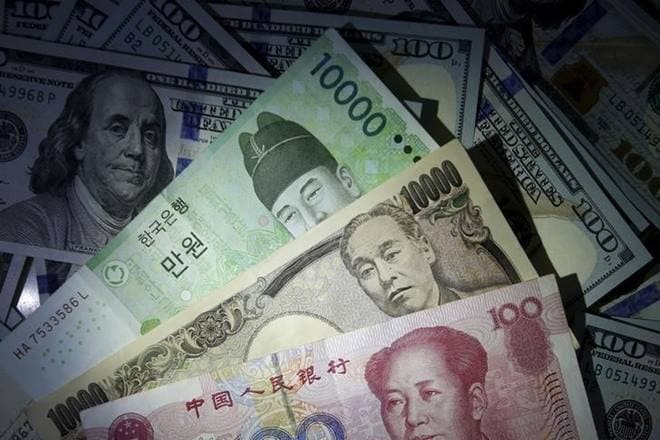The won slipped below 1,200 per dollar for the first time since January 2017 as rising trade tensions worsen the outlook for the South Korean economy and add pressure on the central bank to ease policy again. The currency dropped as much as 0.6% to 1,204.95 against the greenback on Monday, after Tokyo on Friday removed Seoul from a list of trusted export destinations, prompting the latter to say it would do the same. The 3-year yield fell three basis points to 1.23%.
Pressure on the won has risen as tensions with Japan are escalating at a time when South Korea’s export-dependent economy is already caught in the trade-war crossfire between the U.S. and China, its two major trading partners, and is also grappling with a slump in demand for memory chips. Volatility in local financial and foreign-exchange markets may rise, the Bank of Korea warned on Friday. “Considering the weight of trade woes on the won, further escalation in disputes may weaken the currency to as low as 1,220 per dollar,” said Chang Jaechul, chief economist at KB Securities Co. The won’s drop since July reflects “the risk of growing uncertainties in the market, combined with the broad dollar rally and yuan’s weakness,” he said.
The benchmark three-year yield could drop to a fresh record low of 1.10% by year-end as traders add to bets for the BOK to lower the benchmark rate again, said Kang Seungwon, fixed income strategist at NH Investment & Securities Co.
The government has been responding to unusual movements in FX markets with “fine-tuning” operations, Finance Minister Hong Nam-ki said on Friday.
South Korea Prime Minister Lee Nak-yon on Sunday urged Japan to correct its “reckless and risky” decision to curb exports to the country. Separately, Beijing pledged to respond if the U.S. insists on adding extra tariffs to the remainder of Chinese imports.


